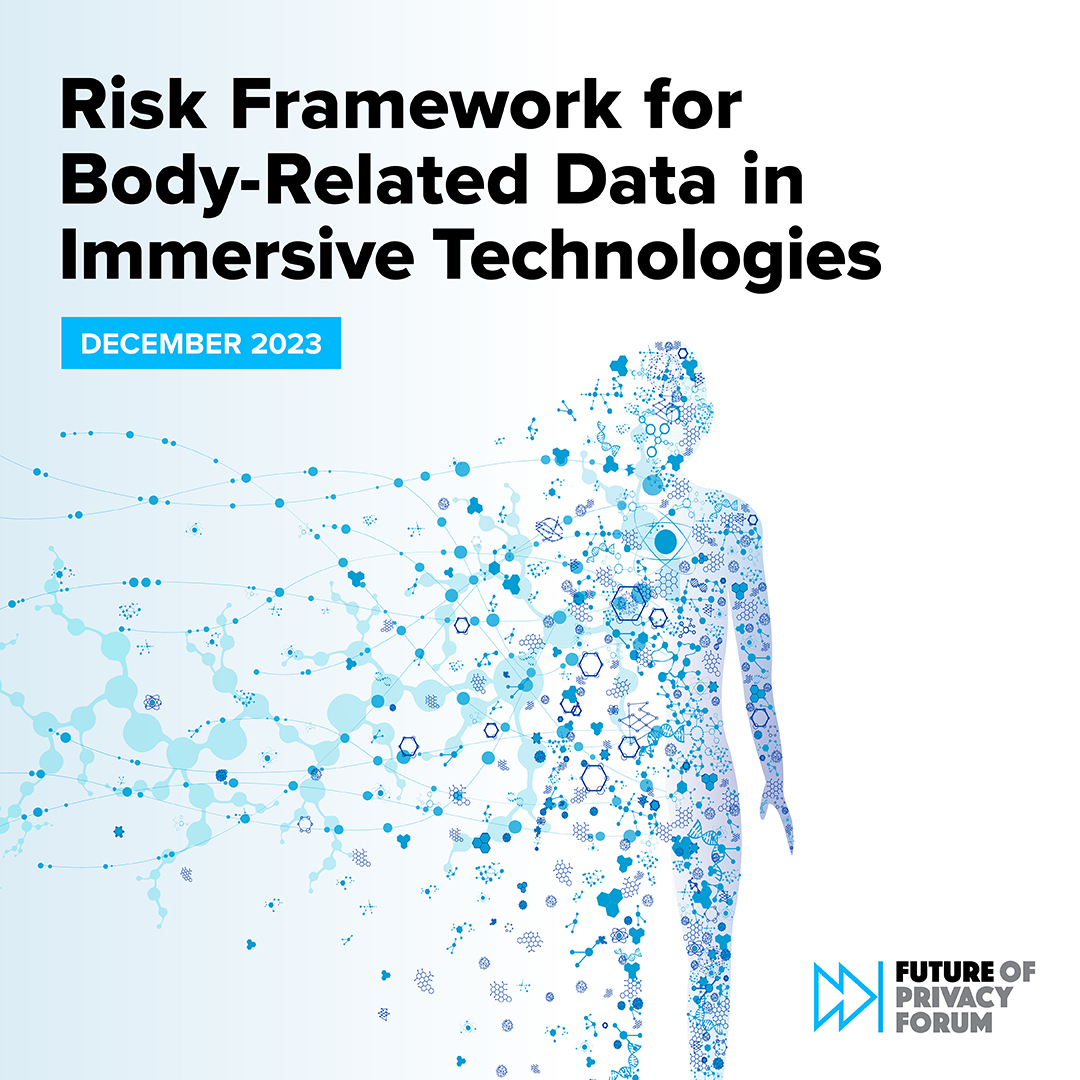
Regu(AI)ting Health: Lessons for Navigating the Complex Code of AI and Healthcare Regulations
Authors: Stephanie Wong, Amber Ezzell, & Felicity Slater As an increasing number of organizations utilize artificial intelligence (“AI”) in their patient-facing services, health organizations are seizing the opportunity to take advantage of the new wave of AI-powered tools. Policymakers, from United States (“U.S.”) government agencies to the White House, have taken heed of this trend, […]

Understanding Body-Related Data Practices and Ensuring Legal Compliance in Immersive Technologies
Organizations are increasingly incorporating immersive technologies like extended reality (XR) and virtual worlds into their products and services, blurring the boundaries between the physical and digital worlds. Immersive technologies hold the potential to transform the way people learn, work, play, travel, and take care of their health, but may create new privacy risks as well. […]

FPF in 2023: A Year in Review
As 2023 comes to an end, we want to reflect on a year that saw the Future of Privacy Forum (FPF) continue to expand its presence globally and domestically while organizing engaging events, publishing thought-provoking analysis, providing the latest expert updates, and more. FPF continues to convene industry experts, academics, consumer advocates, and other experts […]

FPF Publishes New Report: A Conversation on Privacy, Safety, and Security in Australia: Themes and Takeaways
On October 27, 2023, the Future of Privacy Forum (“FPF”), in partnership with the UNSW Allens Hub for Technology, Law and Innovation (“Allens Hub”), convened a multidisciplinary meeting of experts on technology, privacy, safety, and security in Sydney, NSW, Australia to discuss benefits, challenges, and unanswered questions associated with the Australian eSafety Commissioner’s (“eSafety”) forthcoming […]

Risk Framework for Body-Related Data in Immersive Technologies
Today, the Future of Privacy Forum (FPF) released its Risk Framework for Body-Related Data in Immersive Technologies for organizations to structure the collection, use, and onward transfer of body-related data. Organizations building immersive technologies like extended reality and virtual worlds often rely on large amounts of data about individuals’ bodies and behaviors. While body-related data […]

Five Big Questions (and Zero Predictions) for the U.S. State Privacy Landscape in 2024
Entering 2024, the United States now stands alone as the sole G20 nation without a comprehensive, national framework governing the collection and use of personal data. With bipartisan efforts to enact federal privacy legislation once again languishing in Congress, state-level activity on privacy dramatically accelerated in 2023. As the dust from this year settles, we […]

The PrivaSeer Project in 2023: Access to 1.4 million privacy policies in one searchable body of documents
In the summer of 2021, FPF announced our participation in a collaborative project with researchers from the Pennsylvania State University and the University of Michigan to develop and build a searchable database of privacy policies and other privacy-related documents, with the support of the National Science Foundation. This project, PrivaSeer, has since become an evolving, […]

A Blueprint for the Future: White House and States Issue Guidelines on AI and Generative AI
Since July 2023, eight U.S. states (California, Kansas, New Jersey, Oklahoma, Oregon, Pennsylvania, Virginia, and Wisconsin) and the White House have published executive orders (EOs) to support the responsible and ethical use of artificial intelligence (AI) systems, including generative AI. In response to the evolving AI landscape, these directives signal a growing recognition of the […]

ICYMI: FPF Webinar Discussed The Current State of Kids’ and Teens’ Privacy
Privacy by design for kids and teens has expanded across the globe. As policymakers, advocates, and companies grapple with the ever-changing landscape of youth privacy regulation, the Future of Privacy Forum recently hosted a webinar discussing the current state of kids’ and teens’ privacy policy. The webinar explored the current frameworks that are influential worldwide, […]

Survey of Current Universal Opt-Out Mechanisms
With contributions from Aaron Massey, FPF Senior Policy Analyst and Technologist, Keir Lamont, Director for U.S. Legislation, and Tariq Yusuf, FPF Policy Intern Several technologies can help individuals configure their devices to automatically opt out of web services’ requests to sell or share personal information for targeted advertising. Seven state privacy laws require that organizations […]
